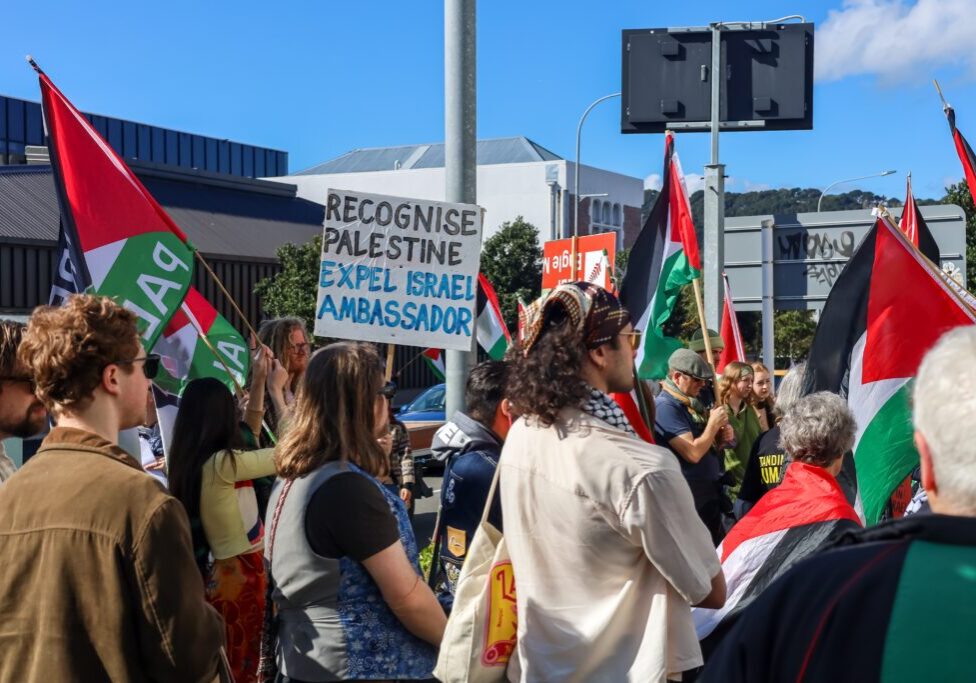Australia/Israel Review
Scribblings: The PA UN bid UNplugged
Sep 26, 2011 | Tzvi Fleischer
Tzvi Fleischer
The AIR has previously canvassed numerous critical arguments concerning the Palestinian bid to have their “statehood” recognised at the UN. These include: that it avoids badly needed negotiations, violates the Oslo Accords, feeds Palestinian illusions about achieving their goals without compromise, courts violence, may damage the standing of the Palestinian Authority (PA) in its competition with Hamas, endangers Israeli-Palestinian cooperation on which the valuable Palestinian economic achievements of recent years rest, and risks the financial collapse of the already fiscally shaky PA government.
Moreover, the PA does not currently meet the criteria for statehood under international law as established by the 1933 Montevideo Convention.
I would like to point out some additional substantial points that have come up in recent debates:
• As Michael Rubin has noted, this move is the very opposite of “land for peace”, the philosophical basis of all peace negotiations since Camp David. This is “give us all the land now, we can discuss peace later”, a good recipe for conflict.
• By allowing the PA to violate the Oslo Accords, this move is guaranteed to make Israel more reluctant to rely on a future final peace agreement for its security. The PA is unequivocally violating the 1995 Israeli-Palestinian Interim Agreement, which the European Union, Russia and the US all signed as witnesses. But some EU members and Russia are actually assisting the PA to violate that agreement. Furthermore, these same parties, including the US (which is at least doing the right thing at the UN) are actively pressuring Israel not to retaliate in any way for the Palestinians acting in material breach of their Oslo obligations – such as by suspending the tax revenue transfers required under Oslo.The problem with this is Israel is going to be expected to rely in part on “International Guarantees” for its security in any future final two-state peace. And such guarantees look effectively worthless in view of the behaviour of the international community on this violation of Oslo. Not only will some of them actively support Palestinian treaty violations, they will also condemn any Israeli attempt to respond to such violations. As veteran Israeli columnist Evelyn Gordon noted, “if the Palestinians can tear up this agreement with impunity, why should Israel believe they won’t be allowed to tear up a final-status agreement with equal impunity? And in that case, why should it risk the drastic concessions a final-status agreement would entail?”
• While “Palestine” does not fulfil the criteria for statehood at the moment for various reasons, even if it did, it would still likely not fulfil the criteria for UN membership. As American scholar Seth Liebsohn has noted:
Chapter II of the [UN] Charter states, ‘Membership in the United Nations is open to all other peace-loving states which accept the obligations contained in the present Charter and, in the judgment of the Organisation, are able and willing to carry out these obligations.’ Some of those obligations include ‘To develop friendly relations among nations based on respect for the principle of equal rights and self determination of peoples, and to take other appropriate measures to strengthen universal peace.’
As long as Hamas, determined to destroy Israel, continues to be a part of the PA, it certainly cannot claim to be respecting this obligation. Indeed, as long as the PA continues to officially reject the idea that peace should be based on “two states for two peoples” with the Jewish people having a right to self-determination in Israel, it’s hard to see how it can claim to be ready to respect the UN Charter obligations.
• Supporters of this move claim that the Palestinians just need a “signal… that the world sees them as real people with real claims to land” in the words of former Australian Ambassador Peter Rodgers. Or they have been waiting too long for a change in the current “unsustainable” situation. Or they need to get more leverage in their negotiations with Israel. But there was a diplomatic option in place that could have achieved all these things, in a much more substantive way than getting a largely symbolic but destructive UN resolution. However, the Palestinians refused to pursue it despite Israeli openness to the idea. Veteran US diplomatic official Robert Danin noted that the Palestinian UN effort:
if successful, could achieve the very position Palestine could have attained long ago at a much lower price. Phase II of the 2003 Quartet Roadmap for Peace offered the option of creating “an independent Palestinian state with provisional borders” as a stepping stone to a negotiated permanent final-status agreement. The Palestinian leadership long rejected this option, fearing that that establishing a state prior to resolving all outstanding final status issues with Israel would leave them unresolved in perpetuity. Now they have effectively reversed course, hoping for just such an outcome. Only now, the Palestinians are pursuing this goal outside of any international diplomatic effort, rather than within one.
• Palestinian leaders from the “moderate” PA are saying that the UN resolution, if it passes, means that all past terrorism against Israel was therefore legal and justified. PA Minister for Prisoner Affairs Issa Karake was quoted in the official paper al-Hayat al-Jadida on Sept. 8 as saying: “The recognition of the state means recognition of the legitimacy of the Palestinian struggle that the Palestinian nation fought, in the search for freedom and independence. In addition, it [recognition of a state] indicates that the struggles of the prisoners are legitimised and legal according to UN Resolutions…”
Tags: Palestinians






